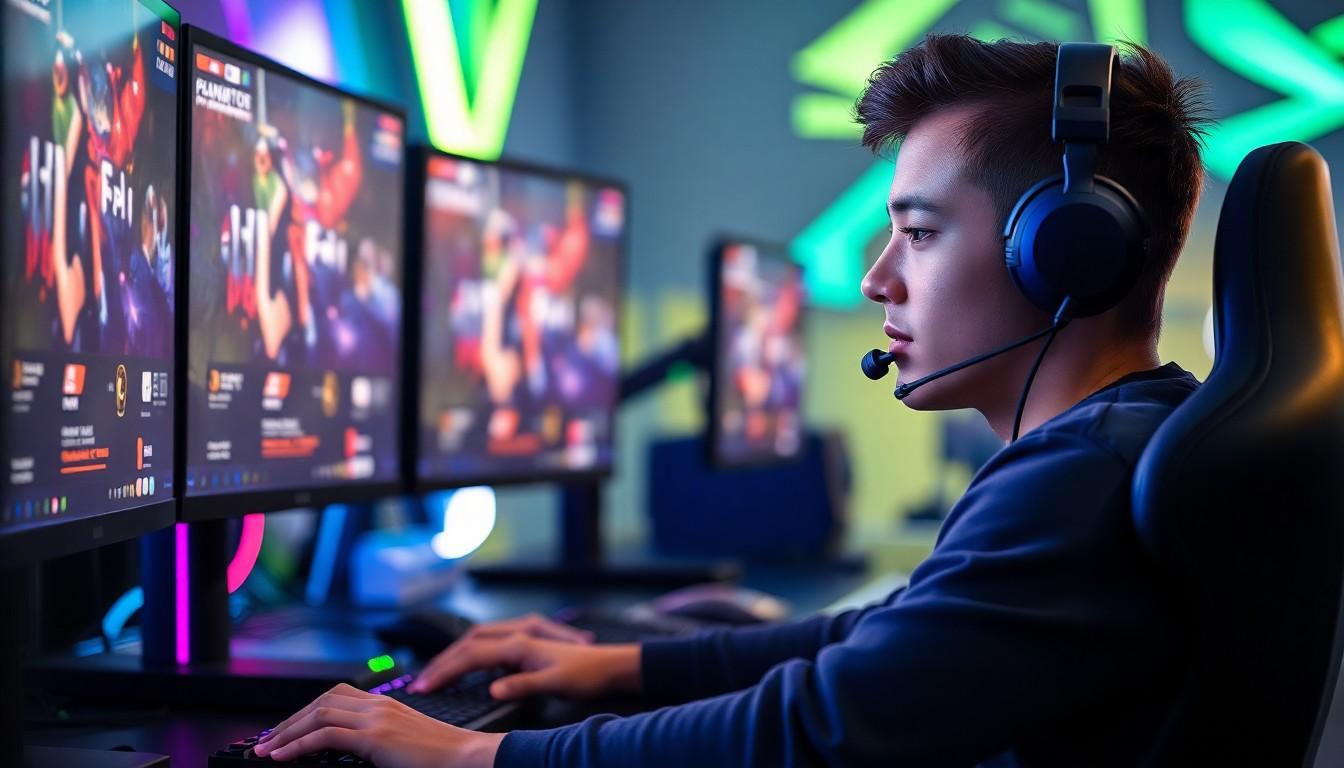Phone:
(701)814-6992
Physical address:
6296 Donnelly Plaza
Ratkeville, Bahamas.

Esports gamers are like shooting stars—brilliant and blazing, but often gone before you know it. With their lightning-fast reflexes and strategic minds, they dominate the virtual arenas, but many find their careers fizzling out faster than a poorly brewed energy drink. So why do these digital gladiators have such short stints in the spotlight?
Esports careers often span a surprisingly short timeframe. The average professional gamer sustains a competitive career lasting around 5 to 10 years. This period is significantly shorter than traditional sports athletes. Players face intense competition and pressure from younger talents emerging frequently.
Physical and mental demands contribute to the brevity of esports careers. Quick reflexes and strategic decision-making capabilities are essential for success. Gamers must practice rigorously for several hours daily to maintain peak performance. Fatigue from extensive practice can lead to burnout, which many players experience.
Injuries also impact longevity in esports. Repetitive strain injuries like carpal tunnel syndrome have become common among players. Maintaining physical health through proper ergonomics and exercise is vital yet often neglected.
Transitioning to life after esports presents another challenge. Many gamers struggle to find opportunities once they retire from competitive play. Limited prospects within the esports ecosystem can hinder career progression. Career changes may include streaming, coaching, or content creation. Each option presents its own sets of challenges and rewards.
Economic factors also influence career length. Sponsorships, prize pools, and trends in gaming affect financial stability. Reliance on external funding can impact players’ decisions about stepping back or continuing to compete.
Overall, the combination of high demands, physical strain, limited career adaptability, and economic instability explains the short-lived nature of esports gamers’ careers.

Esports gamers face unique challenges that contribute to the brevity of their careers. Understanding these factors helps clarify the struggles players encounter.
Injuries such as carpal tunnel syndrome frequently plague esports players. Continuous hours of practice can lead to strain on the wrists and hands, resulting in long-term damage. Proper ergonomics are crucial, yet often neglected, creating a recipe for disaster. Many players experience discomfort that hinders performance, ultimately shortening their careers. Additionally, lack of physical fitness routines exacerbates these issues. Regular exercise can enhance stamina and reduce injury risks, but many players overlook these important habits.
Mental fatigue from intense competition impacts esports players significantly. The pressure to perform consistently contributes to stress and anxiety, leading to burnout. Players often require high levels of focus, which can be mentally exhausting over time. Extended periods of practice without sufficient breaks can exacerbate these feelings, resulting in diminished performance. Some experience a loss of passion for gaming as the competitive scene becomes overwhelming. Transitioning to life after gaming also adds to the mental toll, as many struggle to adapt to new career paths or roles.
Age plays a crucial role in the performance and longevity of esports gamers. Young players often dominate the scene due to their exceptional reflexes and cognitive agility, typically peaking in their late teens to early twenties. Game mechanics require quick decision-making, which often favors younger participants. Research shows that players in this age range possess superior hand-eye coordination and faster response times.
Most esports athletes reach peak performance between 16 and 24 years old. This age bracket aligns with critical cognitive development and physical agility levels. Prolonged periods of rigorous practice enhance skill sets, but as players age, their reaction times may naturally decline. Moreover, mental fatigue from the intense pressure can hinder performance. Statistical analysis indicates that many professional players begin retiring or transitioning by their mid-twenties, as newer, younger talents continually emerge, challenging established competitors.
Transitioning to roles outside of professional gaming offers diverse opportunities for former esports athletes. Common career paths include streaming, coaching, or content creation, all of which utilize gaming skills yet require different competencies. Adjusting to these new roles often proves challenging; the competitive environment differs significantly from active play. Additionally, many players struggle to build an audience or establish credibility in their new endeavors. Economic factors, such as changing sponsorship landscapes, also influence these transitions, as maintaining financial stability becomes critical. Recognizing transferable skills can aid this shift, allowing former gamers to thrive beyond the esports arena.
Esports gamers face multiple industry trends that significantly impact their career length. Constantly changing game dynamics contribute heavily to this phenomenon. New patches, format adjustments, and game releases challenge players to adapt rapidly. Gamers must learn new strategies and techniques frequently, often leading to increased stress and the risk of burnout.
Sponsorship and financial stability also play crucial roles in career longevity. Many esports athletes rely heavily on sponsorship deals and prize money for their income. Fluctuating financial support can lead to uncertainty, often influencing a player’s decision to continue competing. Those without solid sponsorship may struggle to maintain their readiness for competition. Consequently, economic pressures may lead gamers to retire sooner than anticipated, seeking more stable career options.
Esports gamers face a unique set of challenges that contribute to their short careers. The intense competition and constant pressure from younger players create an environment where longevity is difficult to achieve. Physical and mental demands take a toll, often leading to burnout and injuries that can cut careers short.
As the industry evolves rapidly, players must adapt to new dynamics, adding further stress to their already demanding routines. While many gamers transition to roles like streaming or coaching, the shift can be challenging and uncertain. Understanding these factors helps illuminate why esports careers often resemble shooting stars—brilliant yet brief.